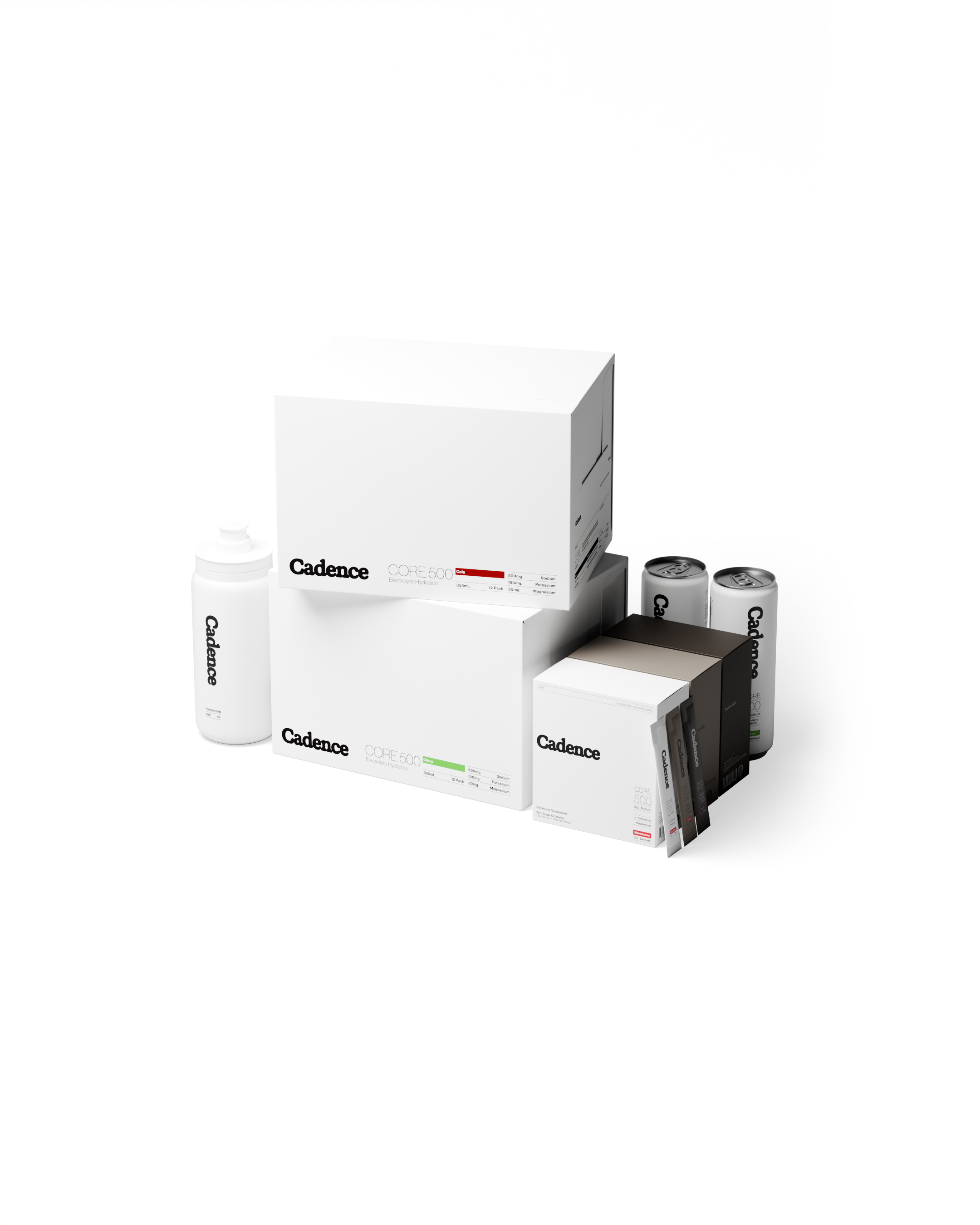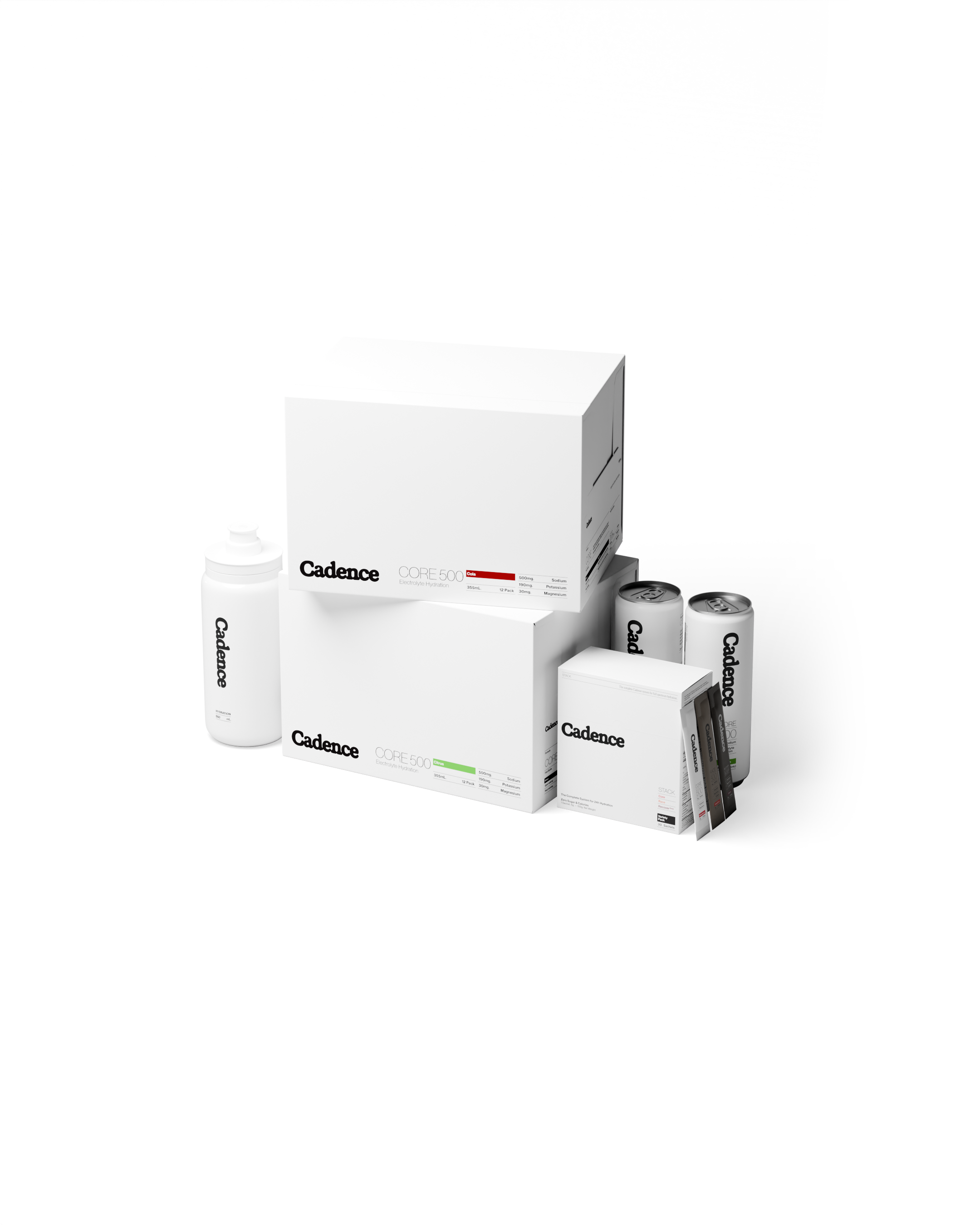Introduction
Hydration is not just about drinking enough water; it's a complex process that also relies on the absorption and balance of electrolytes. Electrolytes are minerals in your body that have an electric charge. They are necessary for numerous functions within the body, including fluid balance, muscle contractions, and nerve signalling. This article presents the benefits of these electrolytes, backed by science.
Cadence™ Electrolytes
Amongst the wide spectrum of electrolytes, sodium, magnesium, and potassium particularly stand out for their roles in maintaining hydration in the body. The Cadence™ electrolyte drink incorporates all three of these electrolytes, in the compound forms of salt (sodium chloride), magnesium lactate, and potassium chloride.
Salt (Sodium Chloride)
Salt plays an instrumental role in hydration by maintaining the body's fluid balance. Otherwise known as Sodium Chloride, salt is a key component of many sports drinks designed to replenish electrolytes lost through sweat. According to Convertino et al. (1996), sodium aids in retaining water and stimulates thirst, ensuring athletes stay adequately hydrated. Moreover, a study by Von Duvillard et al. (2004) highlights salt's importance in prolonged endurance performance, referring to its necessity in maintaining electrolyte balance and preventing hyponatremia, a condition of low blood sodium levels as a result of prolonged sweating.
Magnesium Lactate
Magnesium is imperative for over 300 enzymatic reactions in the body, including those that produce and use ATP, the body's energy currency. It plays a significant role in hydration by moving water into cells, a process essential for muscle function and overall energy. Research by Cinar, Nizamlioglu, Mogulkoc, and Baltaci (2007) demonstrates magnesium's effectiveness in maximising performance and electrolyte balance, highlighting its significance in athletes' hydration strategies. We implemented magnesium in its magnesium lactate form as it is a highly bioavailable compared to others that are often included in supplements.
Potassium Chloride
Potassium is another key electrolyte that works closely with sodium to maintain normal cellular fluid balance, nerve impulses, and muscle contractions. Potassium chloride, a common supplement form, helps counteract the effects of too much sodium, maintaining a healthy electrolyte balance. Studies suggest that potassium-rich diets can help to maintain optimal hydration status, as seen in research by Maughan, Leiper, & Shirreffs (1997), emphasising its role in recovery and hydration post-exercise.
Conclusion
Electrolyte intake plays a vital role in hydration, far beyond simply drinking water. Salt (sodium chloride), magnesium lactate, and potassium chloride each play distinct roles in not just keeping the body hydrated, but also contribute to normal bodily functions including maintaining fluid balance, muscle contractions, and nerve signalling. Our electrolyte drinks were designed with all this in mind; created to hydrate optimally and maximise your potential output, inspired by the rhythm of daily discipline. Whilst you're here, be sure to check out our Core Hydration Electrolyte Sachets. If you would like to sample our full range of electrolyte sachets, then you can also explore our variety pack of hydration sachets.
References
- Convertino, V. A., Armstrong, L. E., Coyle, E. F., Mack, G. W., Sawka, M. N., Senay, L. C. Jr., & Sherman, W. M. (1996). Exercise and Fluid Replacement. Medicine & Science in Sports & Exercise, 28(1), i-vii.
- Von Duvillard, S. P., Braun, W. A., Markofski, M., Beneke, R., & Leithäuser, R. (2004). Fluids and Hydration in Prolonged Endurance Performance. Nutrition, 20(7-8), 651-6.
- Cinar, V., Nizamlioglu, M., Mogulkoc, R., & Baltaci, A. K. (2007). The effect of magnesium supplementation on lactate levels of sportsmen and sedanter. Acta Physiologica Hungarica, 94(1-2), 36-44.
- Maughan, R. J., Leiper, J. B., & Shirreffs, S. M. (1997). Recovery from Prolonged Exercise: Restoration of Water and Electrolyte Balance. Journal of Sports Sciences, 15(3), 297-303.

